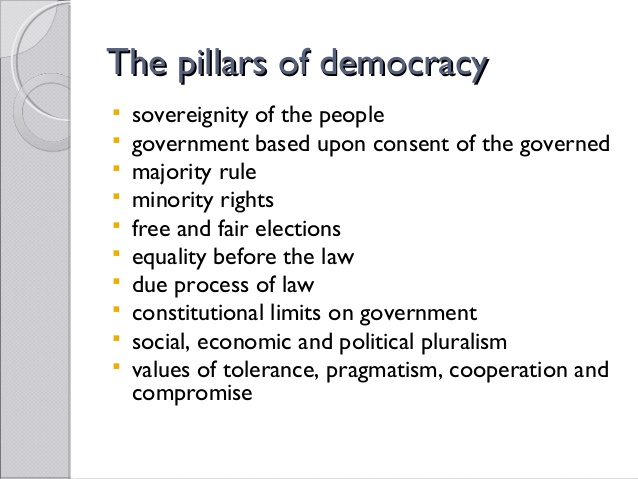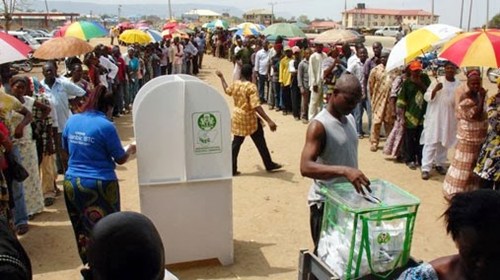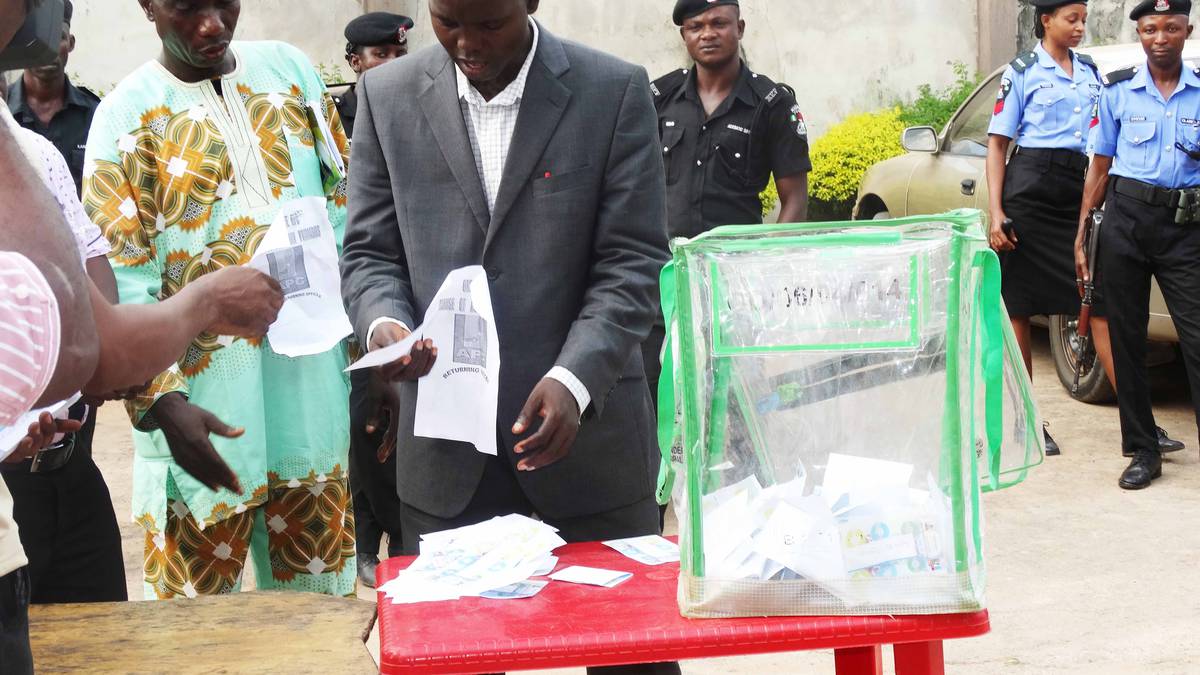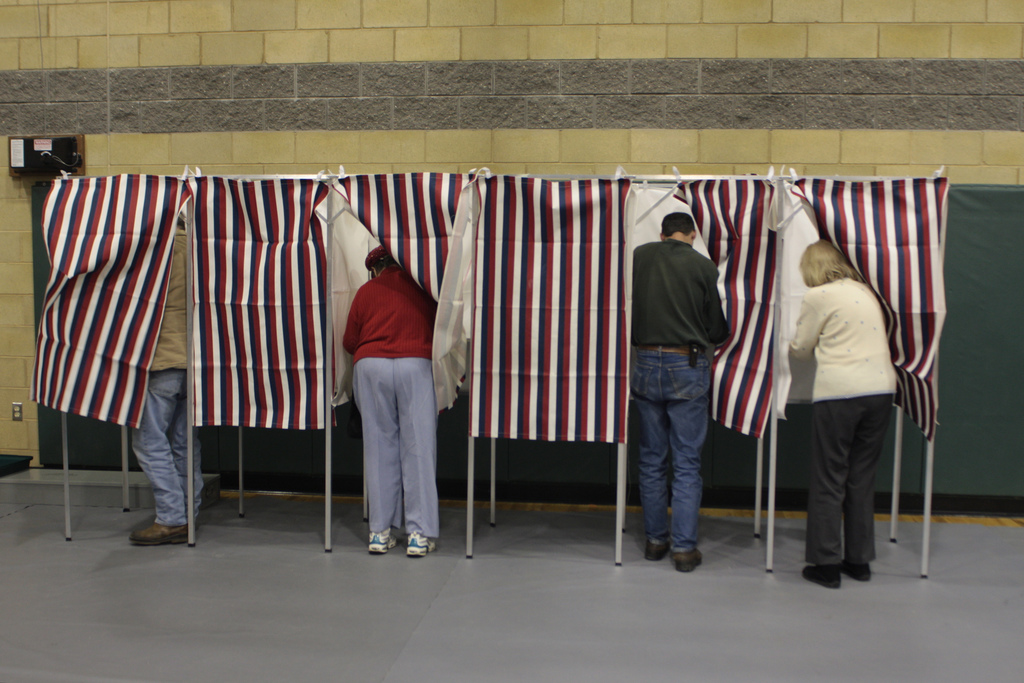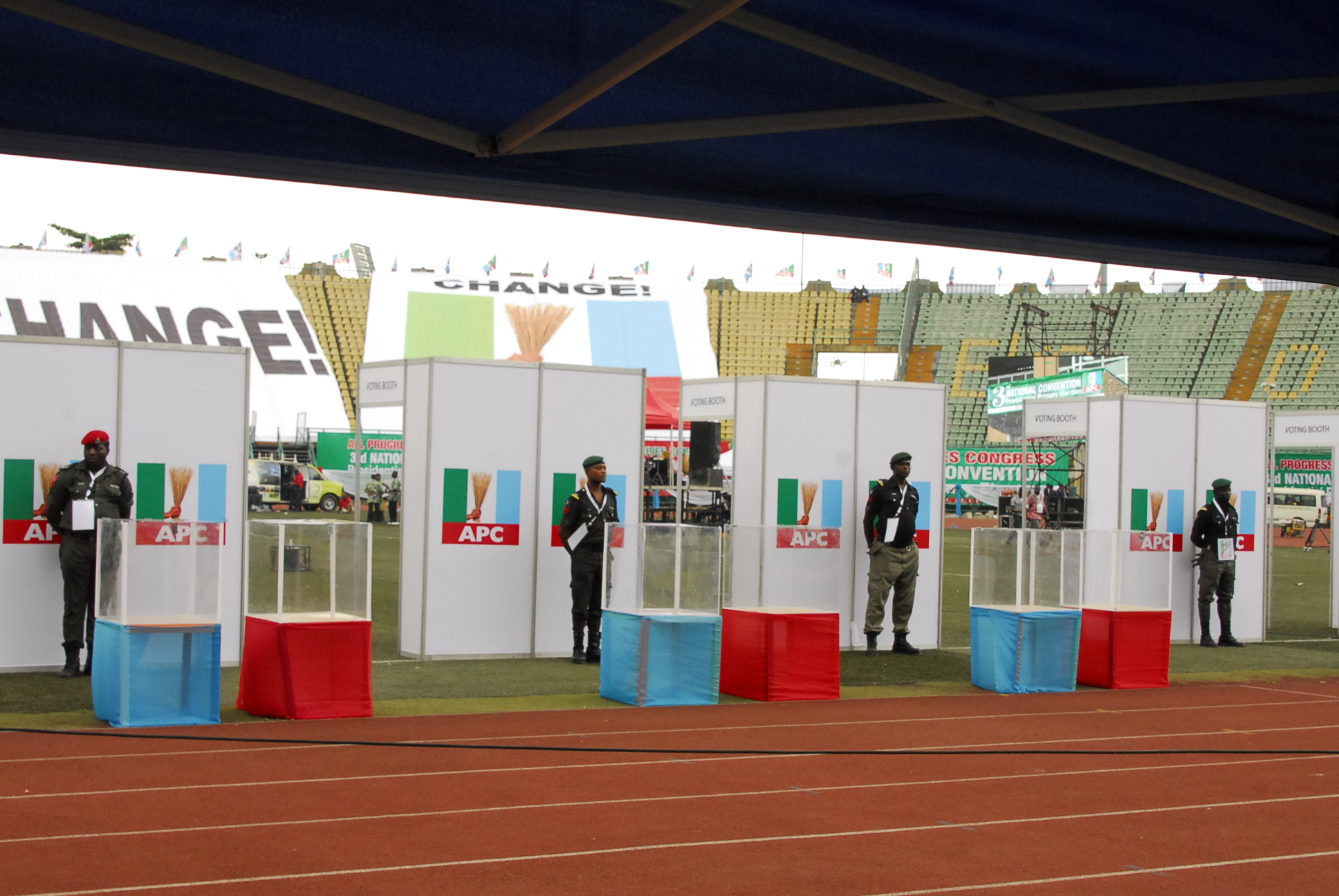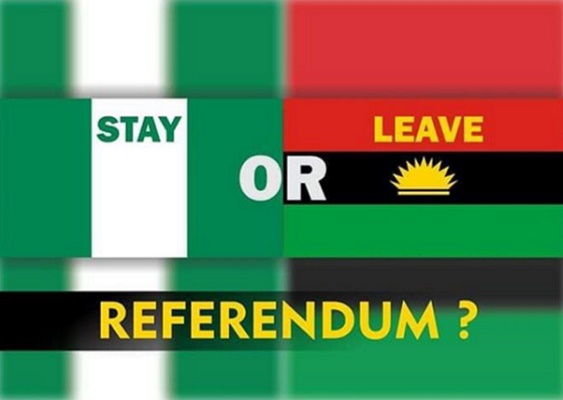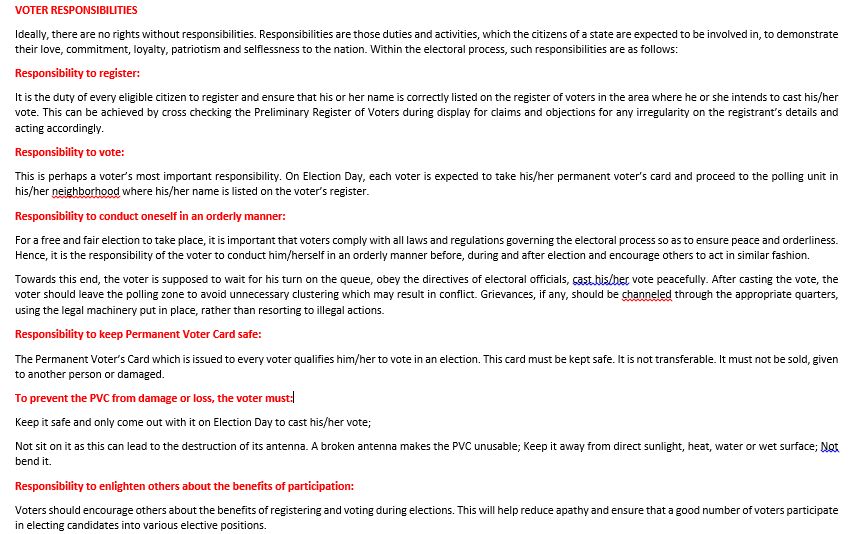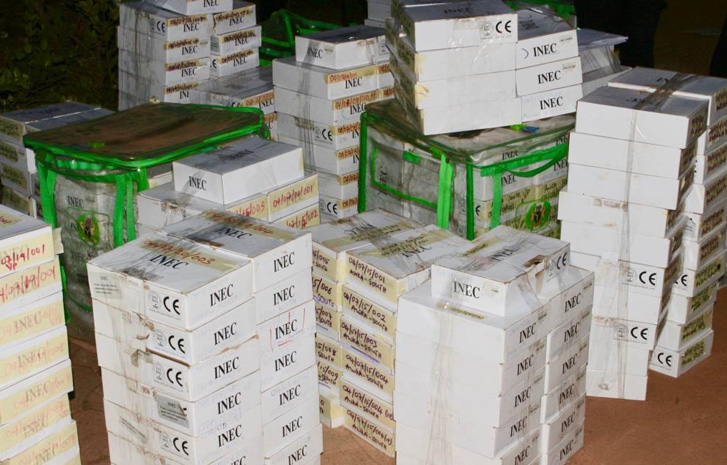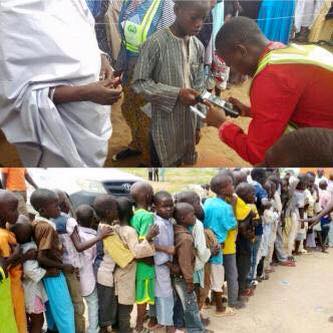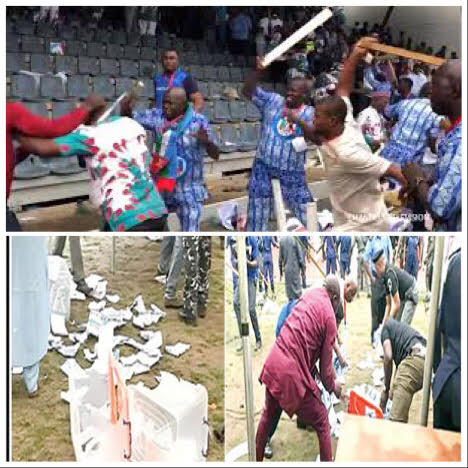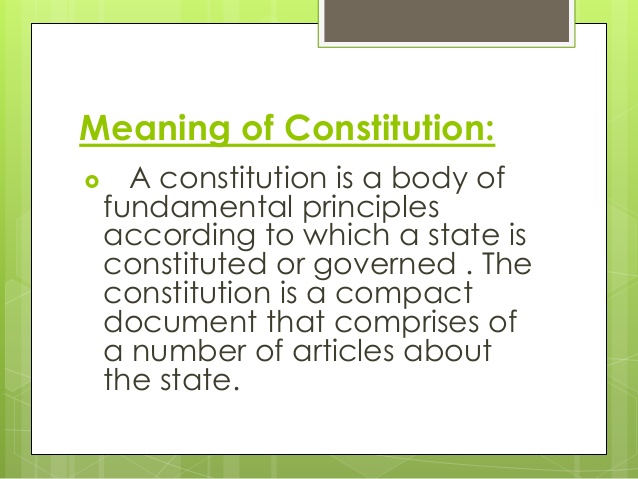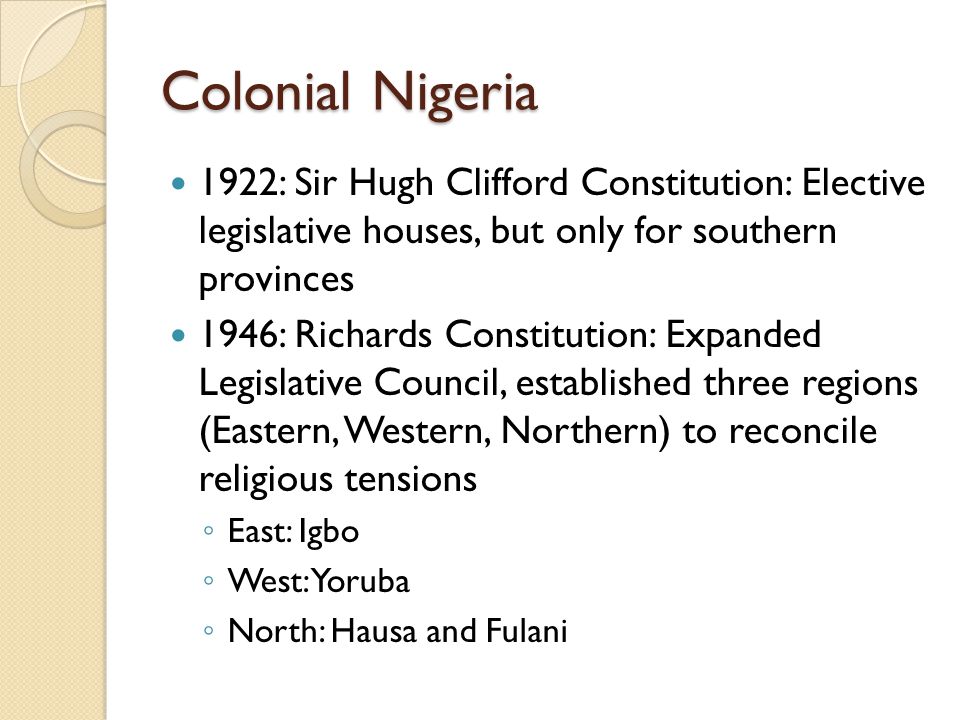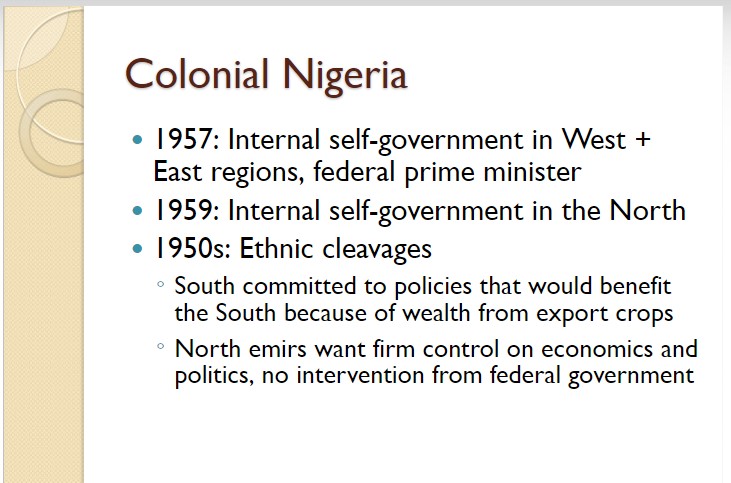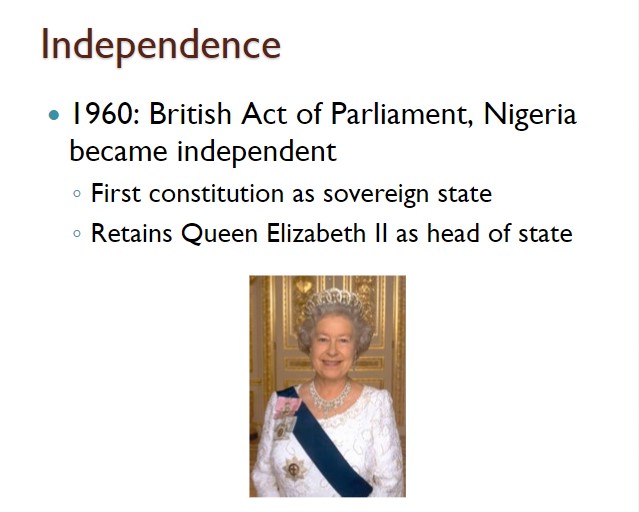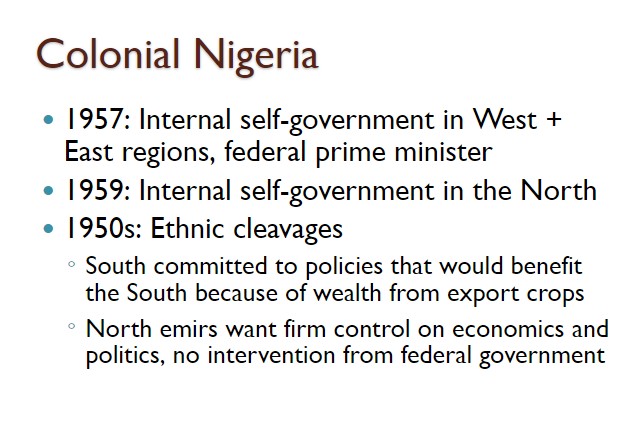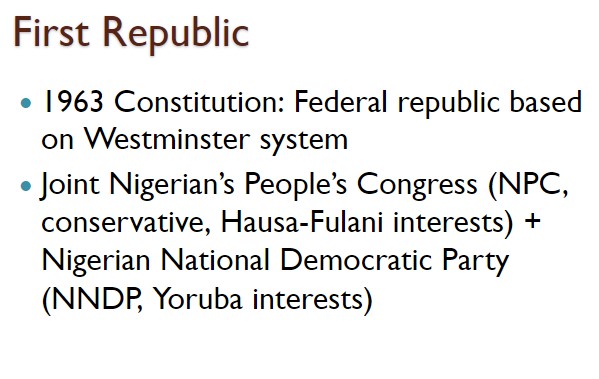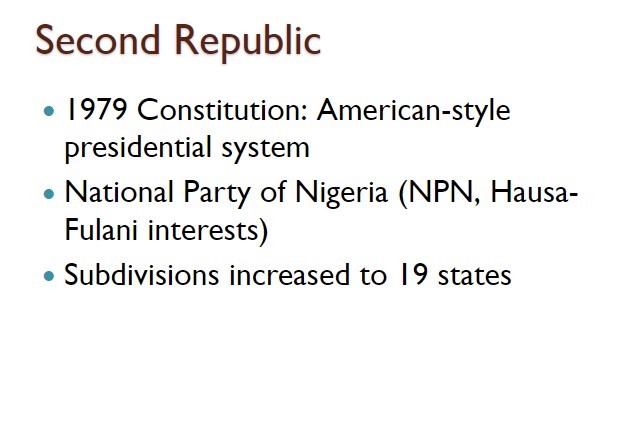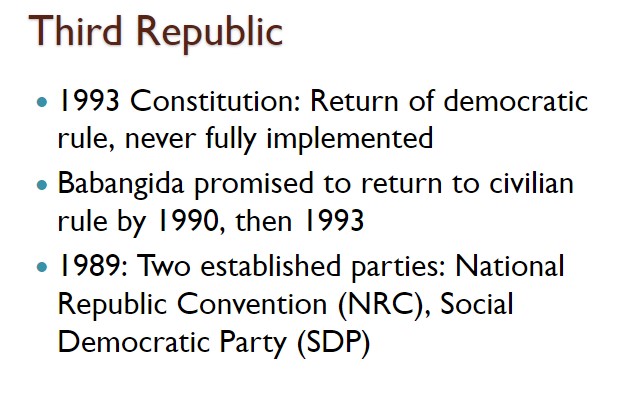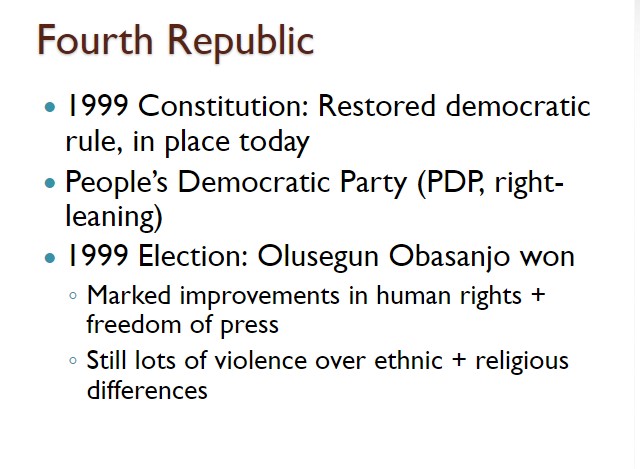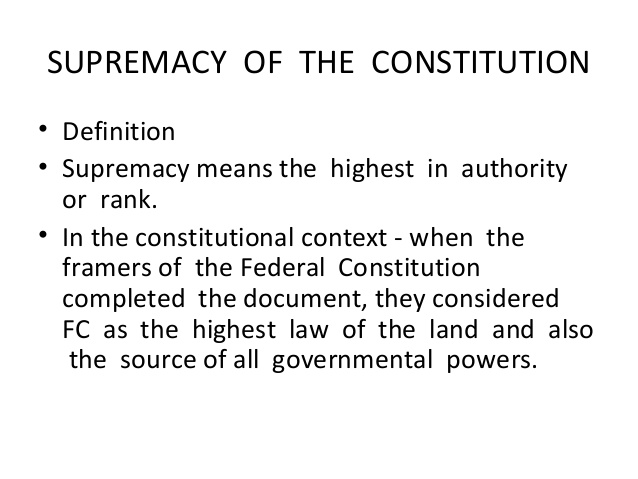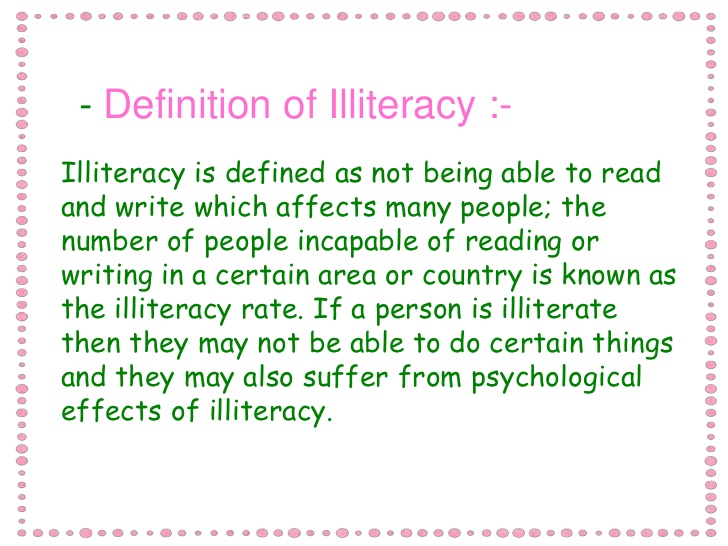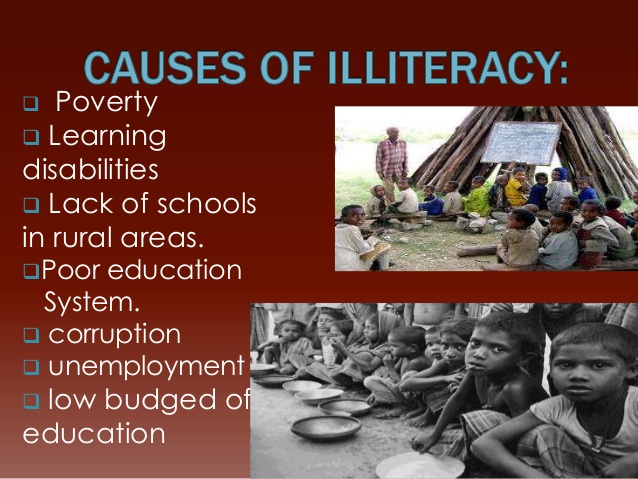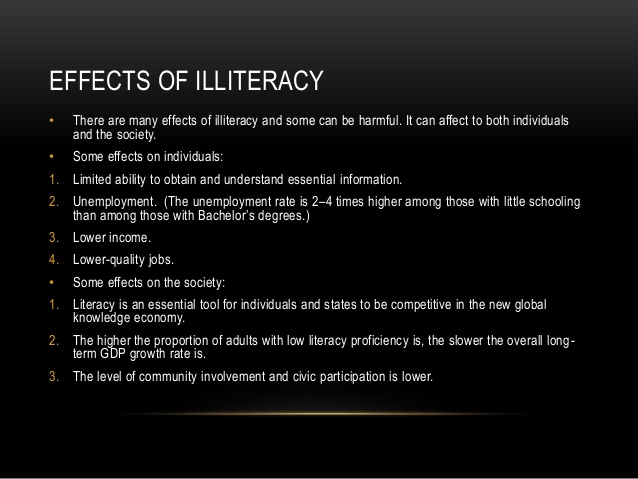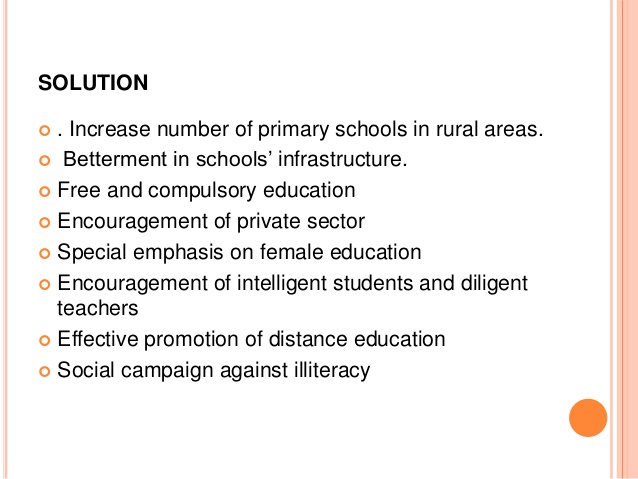LESSON 1
TOPIC: D
EMOCRACY
CONTENTS:
1. Meaning of democracy and features of democracy
2. Democratic institutions
3. Pressure groups
4. Arms of government
5. Importance of democracy.
MEANING OF DEMOCRACY AND FEATURES OF DEMOCRACY
Democracy can be defined as a system of government in which the supreme power is vested in the people and exercise them directly or indirectly
Democracy can also be defined as government in the hand of the majority.
In 1863, Abraham Lincoln who was the American president then defined democracy as the government of the people by the people and the for the people. Today democracy is synonymous with America.
Democracy started in Greece where qualified adult gathered together to discuss issues affecting their communities. Later, democracy was developed or built upon by the Americans.
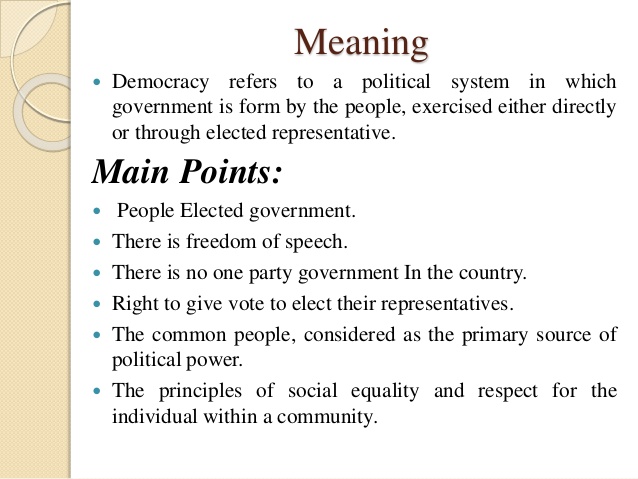 FEATURES OF DEMOCRACY
FEATURES OF DEMOCRACY
1. There must be written or unwritten constitution to guide peoples’ conducts and government actions
2. There must be periodic elections through which citizens elect their leaders
3. There must be adoption of universal suffrage i.e All qualify adults have right to vote and be voted for
4. There should be free and fair election
5. There should be freedom of the press
6. There is separation of powers, i.e the functions of the three arms of government is not performed by one arm of government
7. The government respects the rule of law and the fundamental human rights of citizens.
 https://www.slideshare.net/maheshjp05/c ... -democracy
DEMOCRATIC INSTITUTIONS, POLITICAL PARTIES AND FUNCTIONS OF POLITICAL PARTIES
https://www.slideshare.net/maheshjp05/c ... -democracy
DEMOCRATIC INSTITUTIONS, POLITICAL PARTIES AND FUNCTIONS OF POLITICAL PARTIES
A.
INDEPENDENT ELECTORAL COMMISSION (INEC)
i. The body is charged with the responsibility of conducting a free and fair election
in a state
ii. he body is expected to register all eligible voters and political parties before
the conduct of any election.
iii. They are also to organize campaigns for the contesting political parties in a
state.
iv. They are to provide all electoral materials that will be used in the conduct of
elections such as ballot papers, ink, electoral boxes and electoral centres
v. It is equally the duty of the electoral commission to educate the electorates
before the conduct of election about party logos and the way to vote.
vi. Electoral commission is equally expected to divide the country into some
electoral districts known as constituencies
vii. The body may also provide security on the day of election through the law
enforcement agents
viii. Finally, electoral commission will announce the result of elections
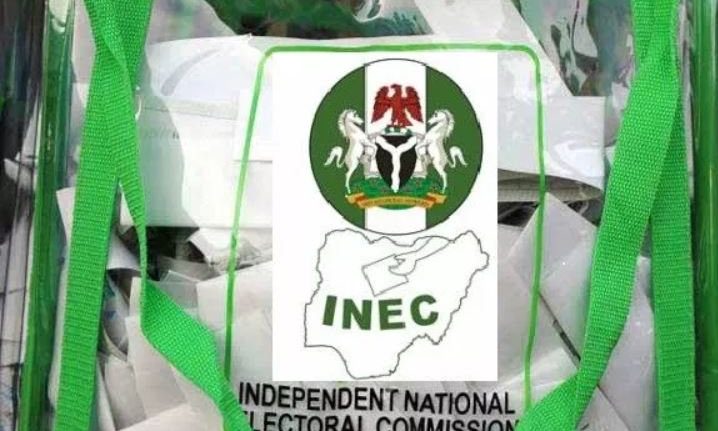
B.
POLITICAL PARTIES
This is a group of people having the same ideology and who come together for the purpose of winning an election and ruling a state examples of current political parties in Nigeria are People’s Democratic Party(PDP) Action Congress of Nigeria (ACN), Congress for Progressive Change (CPC), All People’s Grand Alliance (APGA), All Nigerians People’s party.(ANPP) etc.

C.
FUNCTIONS OF POLITICAL PARTIES
1. Political parties serve as effective means of changing government
2. They are to nominate candidates to stand for various elections within the state.
3. They are equally to educate the voters or electorates through their programmes campaigns and rallies
4. Political parties serve as the link between government and the people
5. It also promotes National Unity because political parties is made up of people from different ethnic groups
6. Political parties provide social services to the members of the public through the programmes of their parties
7. Some political parties may serve as the alternative party to the government in power
8. Political parties may equally provide employment opportunities to job seekers within a state.
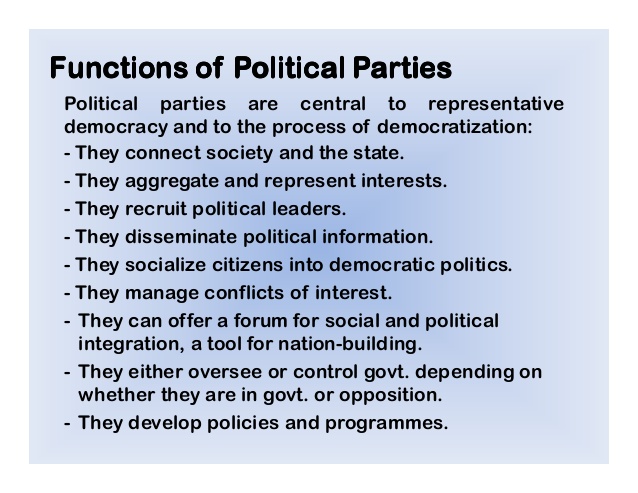
EVALUATION
1. Define democracy
a. Which American president gave a remarkable definition of democracy?
b. Give four features of Democracy
2. Identify two democratic institutions in Nigeria
a. Mention 10 political parties in Nigeria.
b. Give 5 functions of political parties
3. Give three reasons for the establishment of INEC in Nigeria.
LESSON 2
PRESSURE GROUPS AND FUNCTIONS OF PRESSURE GROUPS
PRESSURE GROUPS:These are group of people who want to influence the policies of government so that the government will satisfy the needs of their members. This can be based on ethnicity, religion, political philosophy or common goal.
Examples of pressure groups in Nigeria are:
Nigerian Union of Teachers (NUT), Nigerian Medical Association (NMA), Nigerian Union of Journalist (NUJ) etc.
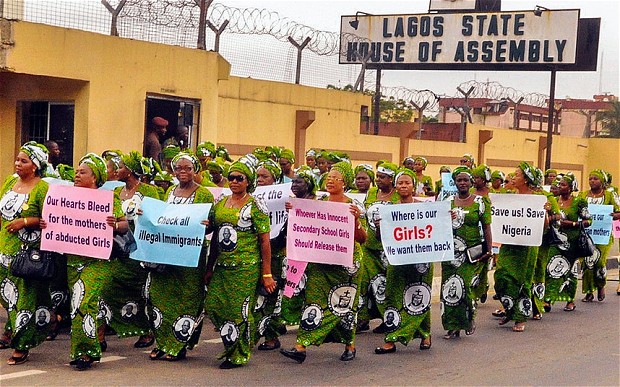 FUNCTIONS OF PRESSURE GROUPS
FUNCTIONS OF PRESSURE GROUPS
1. They fight for the interest of their members so that government will meet the needs of their members.
2. They help to promote economic stability
3. They educate the members of the public through their various programmes such as debates, propaganda, symposia and so on.
4. In the process of fighting for their members, they also protect the interest of a vast majority of people.
5. Pressure groups influence the government to be focused and to be on their toes through constructive criticism. They help to give constructive criticism to the government for effective actions form the government
6. They also serve as the link between the government and the people
FUNCTIONS OF ARMS OF GOVERNMENT
1. LEGISLATURE
(i) They make law
ii. They amend existing laws
iii. They ratify government decisions
iv They approve appointment of key officers in government
v. They approve the annual budget
vi. They supervise the actions of the executive
vii. They impeach the head of government if need arise by simple majority vote
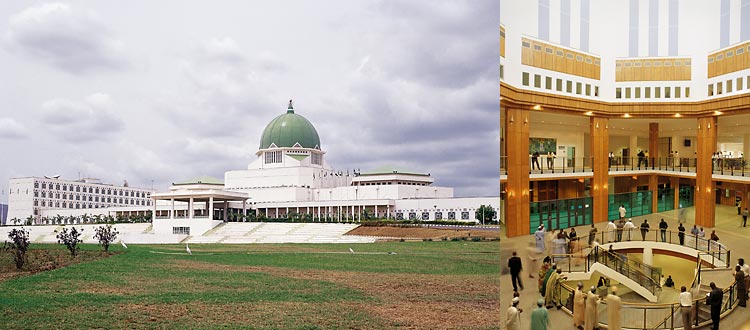
The national house of assembly complex

Legislature in action
2.
EXECUTIVE
i. They initiate bills e.g. public bill
ii. They prepare annual budget
iii. Maintenance of law and order
iv. They provide security
v. Protects fundamental human rights
vi. Maintain friendly relations with other countries of the world
vii. Provide employment opportunities.
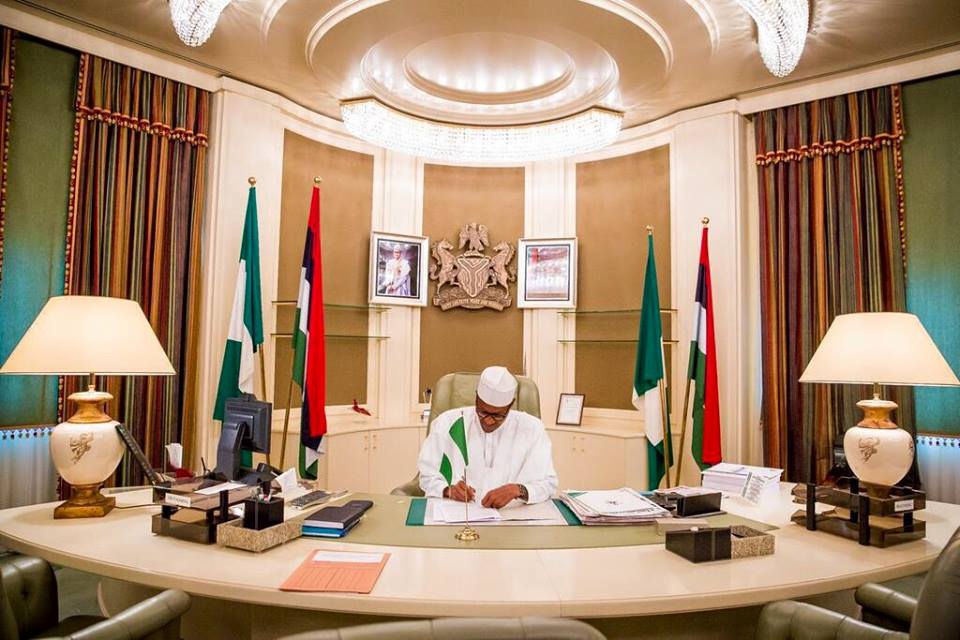
3.
JUDICIARY
It is made up of courts, judges and the Legal officers
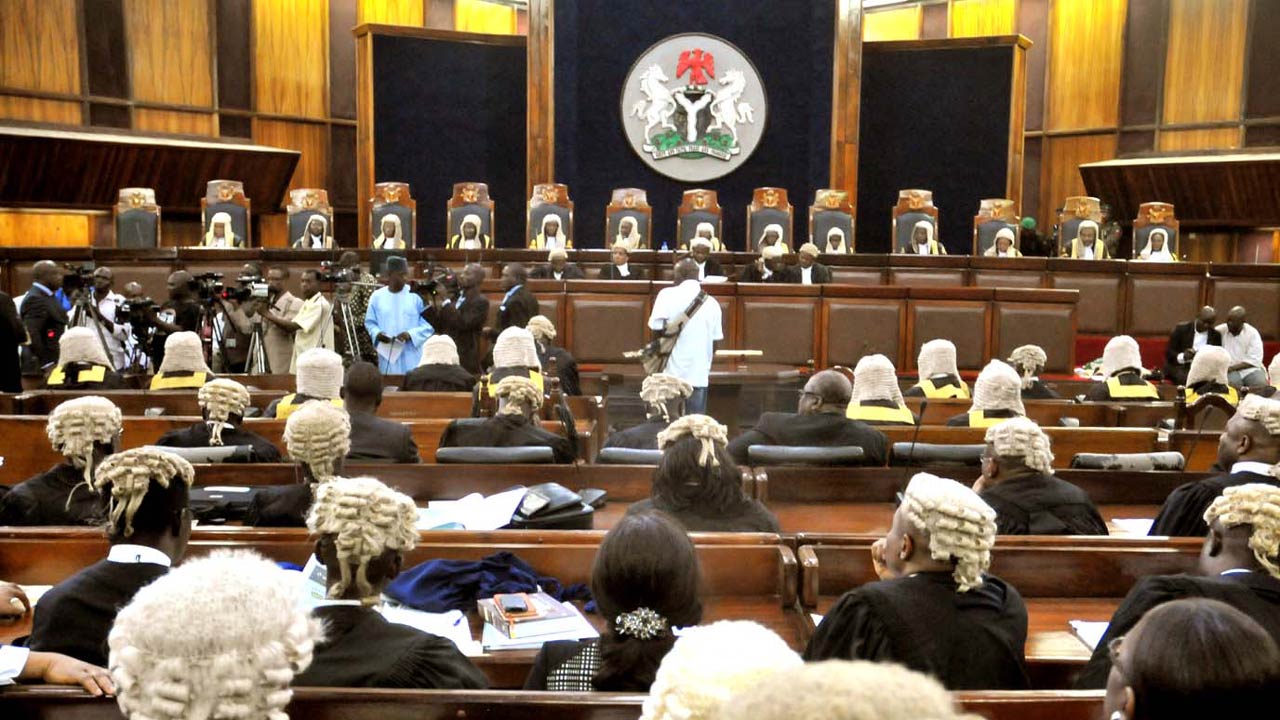 FUNCTIONS:
FUNCTIONS:
i. They interpret the constitution
ii. They interpret the laws made by the legislature
iii. They settle disputes
iv. They defend the rights of the people as the last hope of the common man
v. They punish offenders
vi. They check the excesses of the other organs of government such as the legislature and the executive
IMPORTANCE OF DEMOCRACY
1. Democracy ensures peaceful change of government through the electoral process
2. Democracy enables vast majority of people to participate in the government
3. Democracy will also promote the rights and liberties of the people through the entrenchment of such rights in the constitution
4. Democracy also has the tendency of promoting accountability, as the government is accountable to the people through various means
5. Democracy will afford the people the opportunity to criticize their government since the government is from them
6. Democracy may equally promote the rule of law as government and the people will act in accordance with the dictates of the law
7. Through democratic values, people are being educated as they can learn New Values through political culture and socialization.
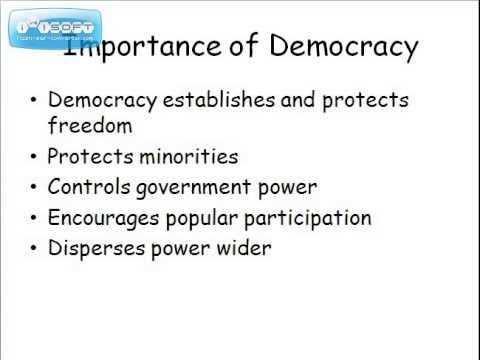
EVALUATION
1. Mention three pressure groups in Nigeria
2. Mention two functions of each of the following arms of government
i. Executive
ii. Legislature
iii. Judiciary
3. Discuss five importance of democracy











